ILLUSTRATION CONTEST 2024
Column
The Essence of Creating Illustrations for the Pokémon Trading Card Game
We talked with Satoru Nagaya and Haru Saito from Creatures Inc., who oversee the overall art and illustration quality of the Pokémon Trading Card Game (TCG), and also with Chris Franc of The Pokémon Company International, who supervises art direction for Pokémon products for overseas markets. We asked them about the essence of creating illustrations for the Pokémon Trading Card Game.
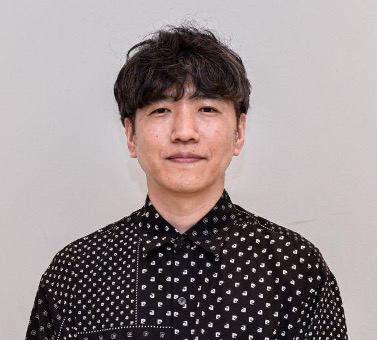
Satoru Nagaya
Creatures Inc.
Pokémon TCG Development Division,
Art Design Team, Art Director
As the art director, he is in charge of art direction for the entire Pokémon Trading Card Game. Since Pokémon TCG cards are sold both in Japan and overseas, he shares design concepts, such as the format of new card series and their logos (for example, “Pokémon V”), with The Pokémon Company and The Pokémon Company International. He also ensures the consistency of the designs among all products.

Haru Saito
Creatures Inc.
Pokémon TCG Development Division,
Illustration Team, Illustration Director
As the illustration director, she is in charge of quality control, planning, and other directorial duties for the illustrations of Pokémon TCG cards.
She also plays an important role in solidifying the underlying concepts of illustrations throughout the series, creating concept illustrations and art images on the planning stage.

Chris Franc
The Pokémon Company International
Director of Graphic Design
Chris Franc is in charge of overseeing the art direction for Pokémon products in international markets. He directs the overall look and feel of products based on the illustrations and materials provided by The Pokémon Company, GAME FREAK, and Creatures.
What is The Pokémon Company International?
The Pokémon Company International, a subsidiary of The Pokémon Company in Japan, manages the property outside of Asia and is responsible for brand management, licensing and marketing, the Pokémon Trading Card Game, the animated TV series, home entertainment, and the official Pokémon website.
Q: Pokémon started as a video game and underwent an incredible evolution with the announcement of the trading card game and the animated series. Among these works, let’s focus on the Pokémon Trading Card Game. What kind of game is it?
Nagaya: The Pokémon TCG is a trading card game based on the Pokémon video game series. It’s also the oldest Japanese trading card game. Each card has various effects, and you can build a deck1 to suit your preferences. The fun part is using these decks to compete in strategy-driven battles. Communication between the players is also one of the big appeals of the game, as the two opposing sides greet each other, shake hands, and interact before each battle. One of the other main features of the Pokémon TCG is that different people enjoy it in different ways: excitedly opening booster packs looking for new cards, rejoicing when they get a new one, looking at the illustrations, collecting the cards, and so on.
1 A deck is a set of cards assembled to play the game. In the Pokémon TCG, decks are composed of 60 cards.
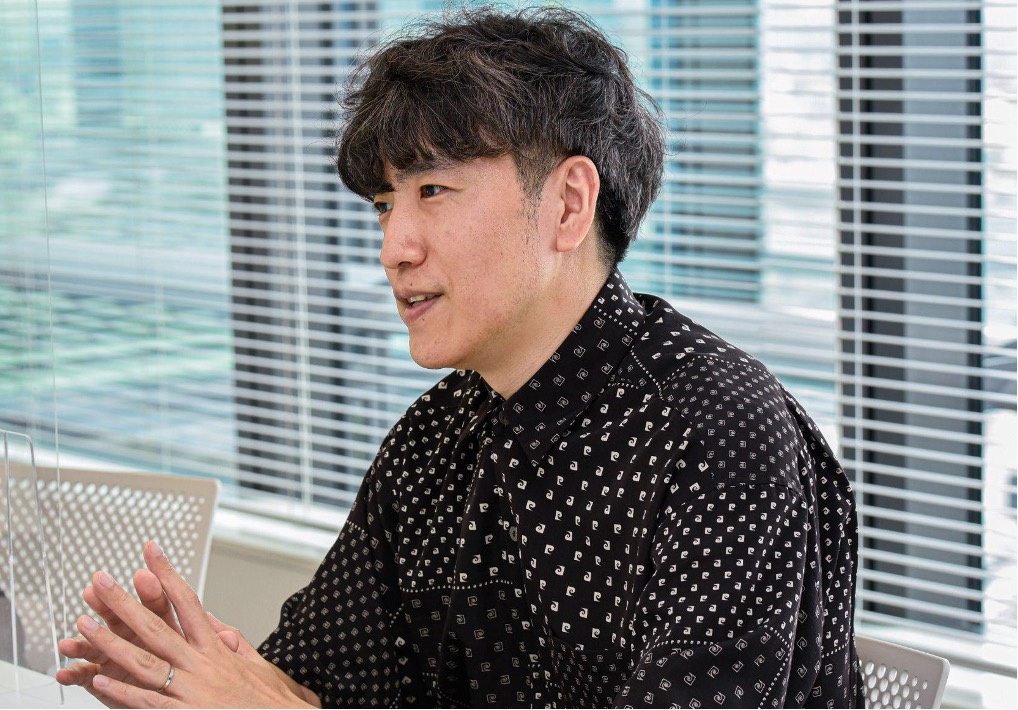
Q: Please tell us about the appeal of the Pokémon TCG from the different standpoints of art director, illustration director, and graphic design director for international markets.
Nagaya: Currently, there are more than 150 illustrators who have worked on the Pokémon TCG. In other words, there are more than 150 different styles of illustrations. The enjoyment of appreciating and collecting this rich array of artwork is one of the main appeals of the Pokémon TCG. Also, it is the most important thing that we consider when developing new illustrations, and we have kept this in our mind since the very beginning of Pokémon TCG development.
Saito: For example, even with the same species of Pokémon, different cards feature different expressions and stories, making each of them feel like encountering a new Pokémon every time. We hope that players will share this excitement, which is what is and will always be important to us.
Franc: From the standpoint of a graphic design director, I think there are many layers to the appeal of Pokémon TCG cards, with the card art being one of the main things that draws you in at first. There is so much fun variety in the card art, and it is always exciting to see the different ways that Pokémon are portrayed in the art via each illustrator’s unique vision and style. I smile every time I see a new set of cards come through.
Another component that really stands out is the immense detail involved from a production standpoint. Every element of the cards and packaging is treated with respect and care to honor the original intent from our partners at Creatures. We spend many hours making sure each part of the process is as perfect as possible from the moment we receive the cards to when we finish proofing them. We really strive to make the cards in all of our markets consistent with the cards in Japan, so no matter where someone buys a pack of Pokémon TCG cards, it is the same experience for all of our fans around the world.

Q: Pokémon TCG illustrations are 2.13 inches wide and 1.34 inches tall. I believe that this size is what makes them as interesting as they are, but it surely places some restrictions on the creation process. Please tell us how you can maximize the charm of a Pokémon within this very limited space.
Nagaya: Considering the balance between the starring Pokémon and the background, you must ask yourself what the Pokémon is doing in the illustration. A very important consideration is whether the composition allows you to answer this question or not. I think that composition itself is one of the keys to bring out a Pokémon’s charm.
Saito: Recently, drawing digital illustrations on computers and such has become the norm. With digital illustrations, even small drawings can be freely magnified both by the person who draws them and by the people who look at them. In other words, I think that illustrations nowadays carry a lot more information for the illustrator to insert and for the viewer to appreciate. Pokémon TCG cards are tangible, printed objects. The players hold them in their hands and see the illustrations in their original small size. You can’t magnify them, unlike with digital illustrations. So the illustrator always keeps in mind the perspective of a user who is holding the card in their hands, considering how much information they can fit inside it and how easy it is to see, meaning that they draw the things that they want to express in a direct, clear way. I think this is what makes it different from illustration work in digital media. The key to drawing Pokémon TCG illustrations is focusing on simply expressing what can fit within the given limits instead of trying to cram as much information as possible into a single illustration.

Q: Some cards have large illustrations that take up the whole card. Why did you choose the basic size illustration frame for the Pokémon Trading Card Game Illustration Contest 2022?
Saito: The size of the illustration specified this time is the same as that of the cards that most players will normally see. This size, the most basic one, exemplifies the crucial concept of making players imagine the world of Pokémon as if it were real. We chose this size to challenge the contestants on how much they understand the mindset of the Pokémon TCG and the artistic range that they will express themselves in.
Q: One of the interesting things about Pokémon TCG illustrations is that they can feature Pokémon in their everyday life or in the middle of battle. Please tell us about what you think is important in drawing Pokémon in scenes like these.
Saito: Before drawing an illustration, I think it’s very important to do some preliminary research on the subject. For the Pokémon TCG especially, it’s vital to learn about the characteristics and individual features of the Pokémon that you are going to draw from a variety of media. For example, using the Pokémon video games as a source, you can read the Pokédex entry for that Pokémon, look at battles, or find scenes featuring that Pokémon. The Pokémon animated series could also help you understand a certain Pokémon better. It is important to first absorb knowledge about a Pokémon, then process this knowledge in your own unique way and imagine the details of how that Pokémon lives. I think that asking yourself, “How would this Pokémon live if it existed in the real world?” can make an illustration that much more persuasive. However, please note that imagining too much will be counterproductive. For example, coming up with original animals or plants that don’t exist in the Pokémon world, or adding details that go against what a certain Pokémon is supposed to be, can end up taking one out of the Pokémon world—which is where we want to lead our fans.
Q: Please tell us about specific ideas that are important for Pokémon TCG illustrations.
Saito: The Pokémon TCG is, of course, a trading card game. As such, it is important for the players to be excited about the prospect of finding new cards. Our aim is to create new encounters with Pokémon that can bring joy to the players. This is why I would like all official Pokémon Trading Card Game illustrators to pour all of their individuality into a single illustration without being afraid to show it. Of course, the prerequisite is that of staying within the bounds of what the Pokémon world has always stood for. For example, being able to be enjoyed by both children and adults, being appropriate for all kinds of people as these cards will reach a wide variety of players, treating Pokémon as one’s companion, and so on. I would like illustrators to express their creativity and follow this world-view while also having fun being creative.
Q: I believe that the unique capabilities and lives of Pokémon are also going to be important. How should one express these in their illustrations?
Saito: The artist must first have a firm grasp on the characteristics of their subject Pokémon, and then find facets of those characteristics that better fit their own individuality, style, and artistic range. I think that if you choose a subject whose characteristics you have a high affinity for, you will be able to create a unique illustration.
Q: The theme for the Pokémon Trading Card Game Illustration Contest 2022 is “The daily life of Pokémon.” Please tell us what reasons and aims made you choose this theme.
Nagaya: We tried to go back to the wide range of possibilities enabled by the Pokémon TCG illustrations. “The daily life of Pokémon” may include scenes of a Pokémon simply relaxing, as well as ones of them fighting. We hope to come across illustrations depicting all kinds of Pokémon scenes. Another reason is that this contest will be held simultaneously in Japan and the United States, so we wanted a theme that was universally understood.
Q: Please tell us more about the theme. The interpretation of “The daily life of Pokémon” is left to the contestants. I feel that it is challenging, but in a good way.
Nagaya: I think the point is how imaginative each contestant can be. Of course, “daily life” could mean any of a variety of things. I think that making an illustration that stands out requires you to think out of the boundaries of what you would immediately associate with a certain Pokémon’s life. Imagination will probably be one of the most important skills.
Saito: We want contestants to draw with the confidence of being able to go into detail about a certain Pokémon even more so than we are. The more the illustrator thinks about how their subject goes about their daily life, the more realism the illustration will end up having.
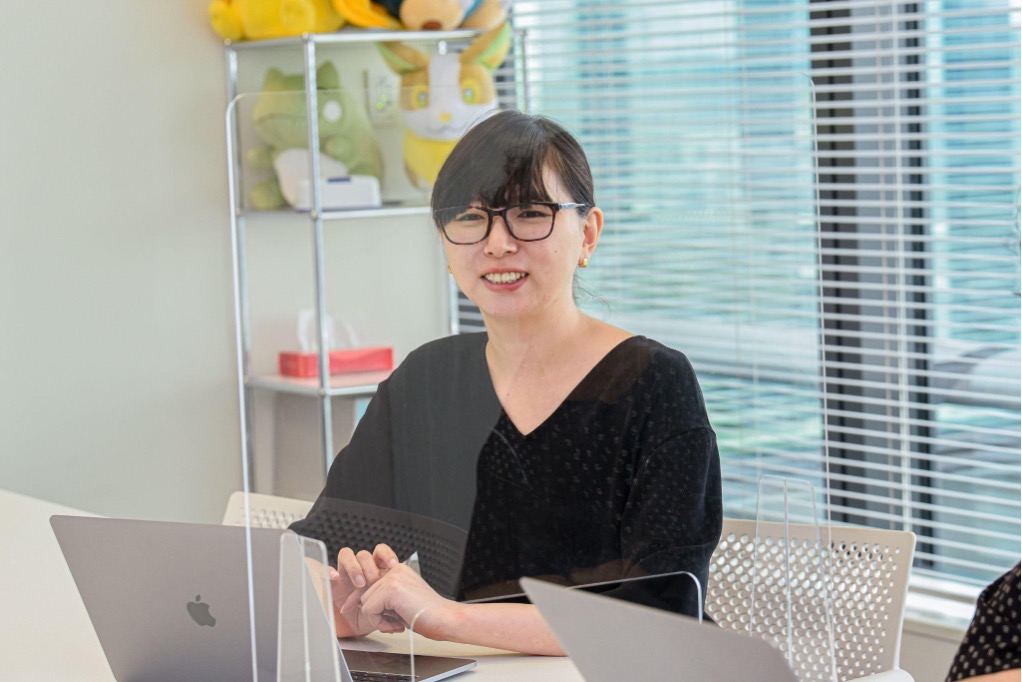
Q: The Pokémon TCG has a 25-year history. What does Creatures expect from illustrations?
Nagaya: What we want from Pokémon TCG illustrations is for them to make a lasting impact on the viewer. Some illustrations capture the hearts of many, while others have a more niche appeal, gathering the enthusiastic support of just a few. We hope to see the illustrations that are unforgettable for those who see them. You don’t have to focus on how many people will appreciate your illustration, but rather on how memorable you can make it for a person who sees it.
Q: The Pokémon Trading Card Game Illustration Contest 2022 is also accepting applications from the United States. What do you expect from overseas applicants?
Nagaya: The Pokémon TCG is produced by Creatures in Japan, which makes the cards that are distributed throughout the world, including the United States. With a process such as this, some overseas fans, whose perspectives are different from those of Japanese ones, could wish that there are certain types of illustrations that don’t exist yet. I hope the people who actually feel like that will come forth with their suggestions, showing us new kinds of illustrations. We will be very happy to discover that there are methods of expression that we still haven’t tapped into.
Saito: Japanese art is very unique. In general, it favors starting with outlines and then filling them in with colors. I think that the manga and illustration culture we have nowadays in Japan has evolved from contour-centric art forms, which were in turn based on old printmaking methods. On the other hand, Western art is based on capturing light and adding colors to it. The perspectives and values of expressing what you perceive into a drawing have likely evolved along completely different pathways than in Japan. This difference in methods to express and relay information is what I hope to see in the Pokémon Trading Card Game Illustration Contest 2022. In addition, I hope to see some drawing styles typical of comics from overseas, as I think that they are very cool. I also feel that many animations and movies from overseas focus on the atmosphere and story that the characters weave, rather than the individuality of the characters’ visuals and design. I think that the Pokémon TCG concept of “making players imagine a world where Pokémon really exist” is a good fit for the perspectives and expression methods of some of these overseas artists. I’m really looking forward to seeing their work.
Franc: I’m excited to see what the fans will develop for this contest. Our fans come from such diverse backgrounds and cultures that I expect to see a wide spectrum of art styles, interesting storylines, and fun interactions with the characters. One of my favorite things about Pokémon TCG art is that it really can be just about any style, as long as it feels true to the character that is being represented in the art. Pokémon TCG art is really a snapshot into the daily life of the Pokémon and what it happens to be doing in that moment, whether it’s in the middle of an epic battle or simply taking a nap.
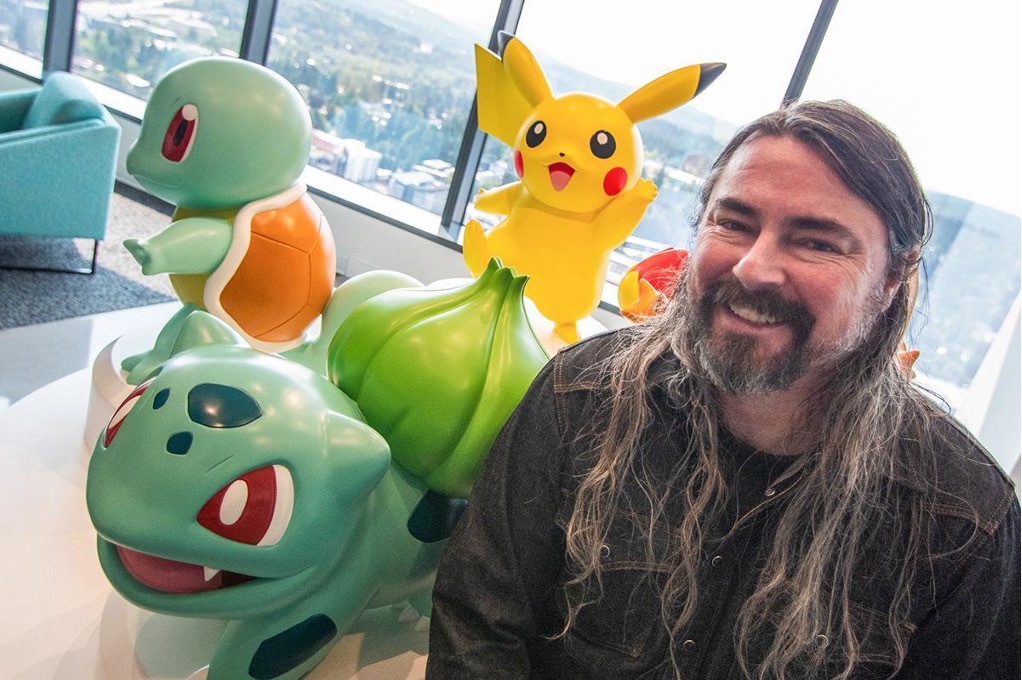
Q: Lastly, what would you like to say to the Pokémon Trading Card Game Illustration Contest 2022 applicants?
Nagaya: The Pokémon TCG is enjoyed by people all over the world. When creating the illustrations, it is important to precisely show the world of the Pokémon video game series and Pokémon TCG to all of these players. I would love to see how you can express your individuality in illustrations within the boundaries of this Pokémon world. Show us your unique representation of “The daily life of Pokémon.”
We will carefully judge each and every one of the works we receive. I hope that among them, we will find new ways to represent Pokémon and be charmed by them.
I am looking forward to seeing a lot of illustrations. I hope you will all be enthusiastic about applying.
Saito: The Pokémon TCG is a product for everyone, both children and adults, wherever they live in the world. Make sure to put all your heart into your illustration, coming up with a work of art that will give strength and joy to whoever sees it.
Franc: I think the most important thing is to have fun with it. Every person has a story, and so does every Pokémon. If you are being true to your art and true to the Pokémon, it will show.
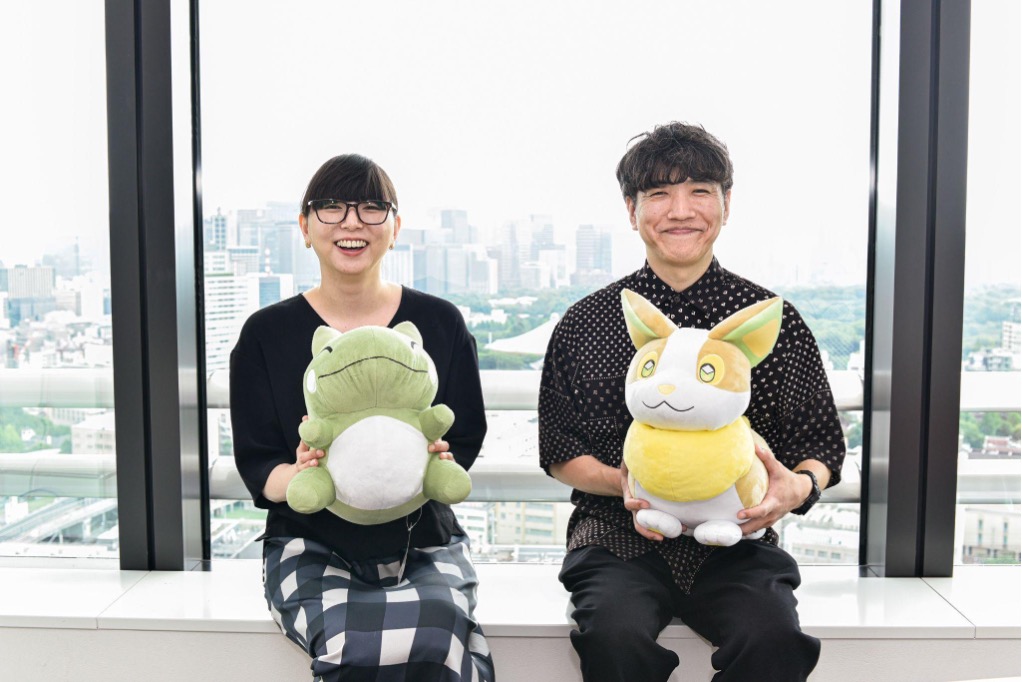
Composition and text: Shusuke Motomiya (One-up) Photos: Kayoko Yamamoto